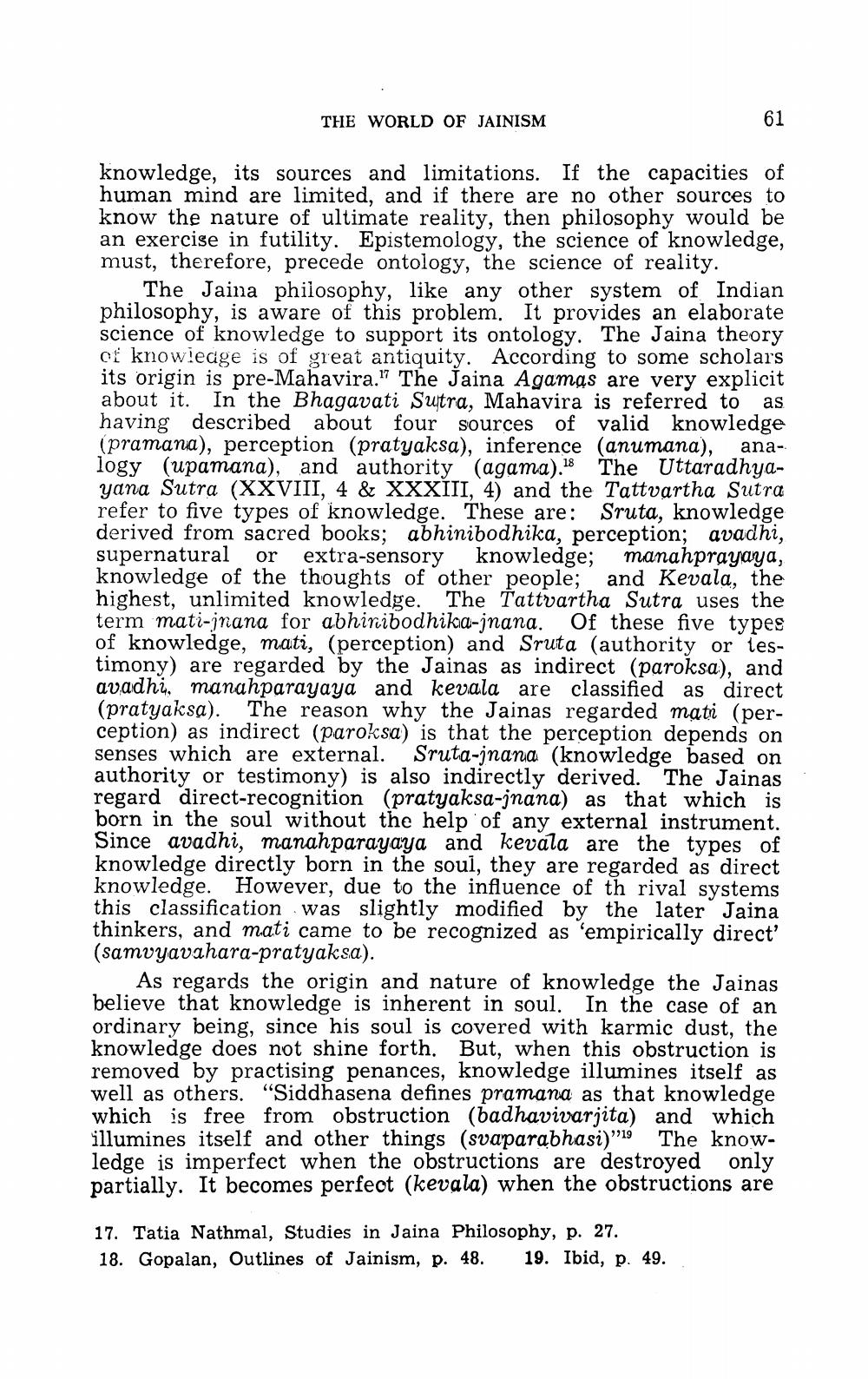________________
THE WORLD OF JAINISM
knowledge, its sources and limitations. If the capacities of human mind are limited, and if there are no other sources to know the nature of ultimate reality, then philosophy would be an exercise in futility. Epistemology, the science of knowledge, must, therefore, precede ontology, the science of reality.
The Jaina philosophy, like any other system of Indian philosophy, is aware of this problem. It provides an elaborate science of knowledge to support its ontology. The Jaina theory of knowledge is of great antiquity. According to some scholars its origin is pre-Mahavira." The Jaina Agamąs are very explicit about it. In the Bhagavati Sutra, Mahavira is referred to as having described about four sources of valid knowledge (pramana), perception (pratyaksa), inference (anumana), analogy (upamana), and authority (agama).18 The Uttaradhyayana Sutra (XXVIII, 4 & XXXIII, 4) and the Tattvartha Sutra refer to five types of knowledge. These are: Sruta, knowledge derived from sacred books; abhinibodhika, perception; avadhi, supernatural or extra-sensory knowledge; manahprayaya, knowledge of the thoughts of other people; and Kevala, the highest, unlimited knowledge. The Tattvartha Sutra uses the term mati-jnana for abhiribodhika-jnana. Of these five types of knowledge, mati, (perception) and Sruta (authority or testimony) are regarded by the Jainas as indirect (paroksa), and avadhi. manahparayaya and kevala are classified as direct (pratyaksa). The reason why the Jainas regarded mati (perception) as indirect (paroksa) is that the perception depends on senses which are external. Sruta-jnana (knowledge based on authority or testimony) is also indirectly derived. The Jainas regard direct-recognition (pratyaksa-jnana) as that which is born in the soul without the help of any external instrument. Since avadhi, manahparayaya and kevala are the types of knowledge directly born in the soul, they are regarded as direct knowledge. However, due to the influence of th rival systems this classification was slightly modified by the later Jaina thinkers, and mati came to be recognized as 'empirically direct' (samvyavahara-pratyaksa).
As regards the origin and nature of knowledge the Jainas believe that knowledge is inherent in soul. In the case of an ordinary being, since his soul is covered with karmic dust, the knowledge does not shine forth. But, when this obstruction is removed by practising penances, knowledge illumines itself as well as others. "Siddhasena defines pramana as that knowledge which is free from obstruction (badhavivarjita) and which illumines itself and other things (svaparabhasi)"19 The knowledge is imperfect when the obstructions are destroyed only partially. It becomes perfect (kevala) when the obstructions are
17. Tatia Nathmal, Studies in Jaina Philosophy, p. 27. 18. Gopalan, Outlines of Jainism, p. 48. 19. Ibid, p. 49.




